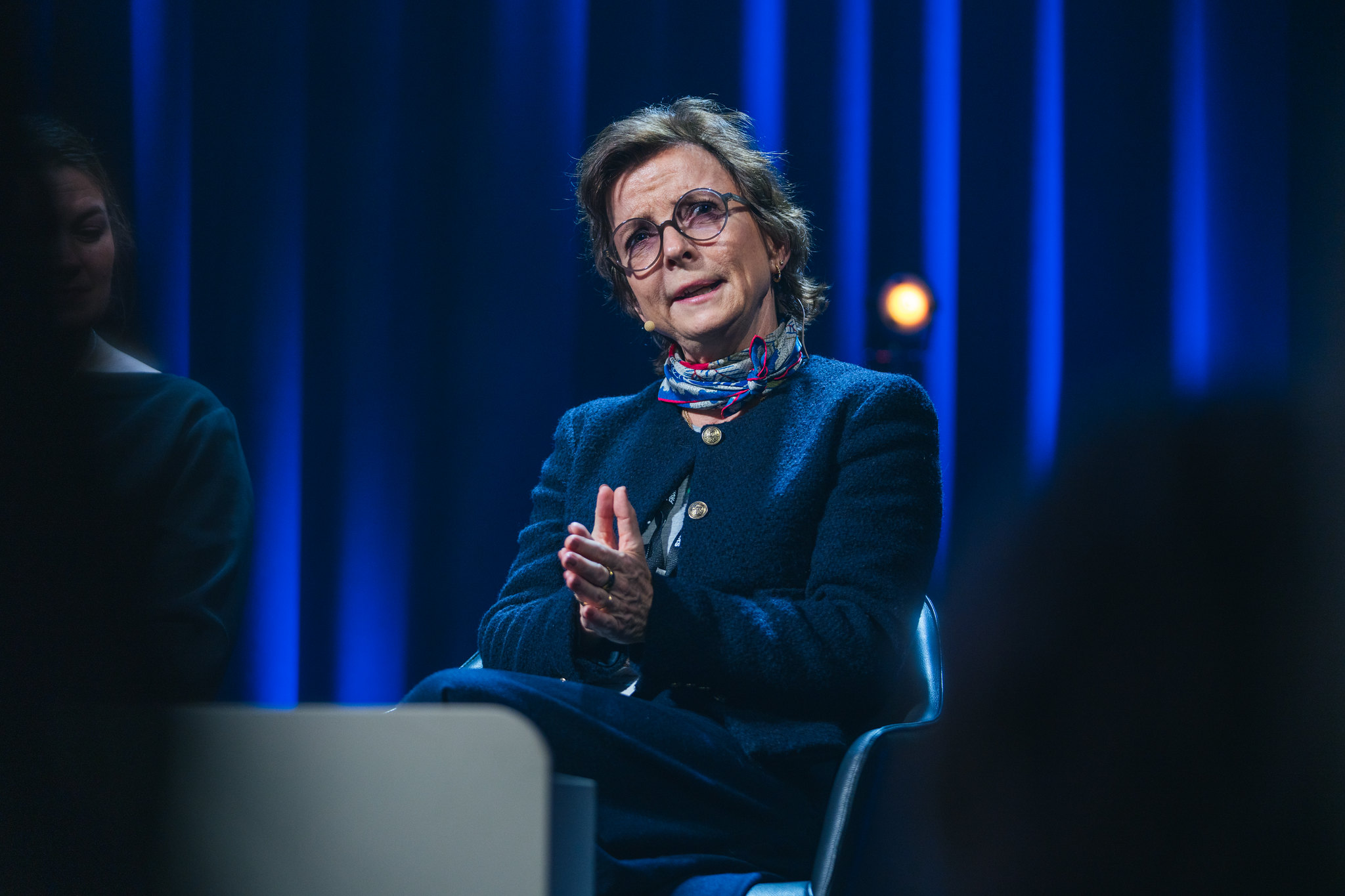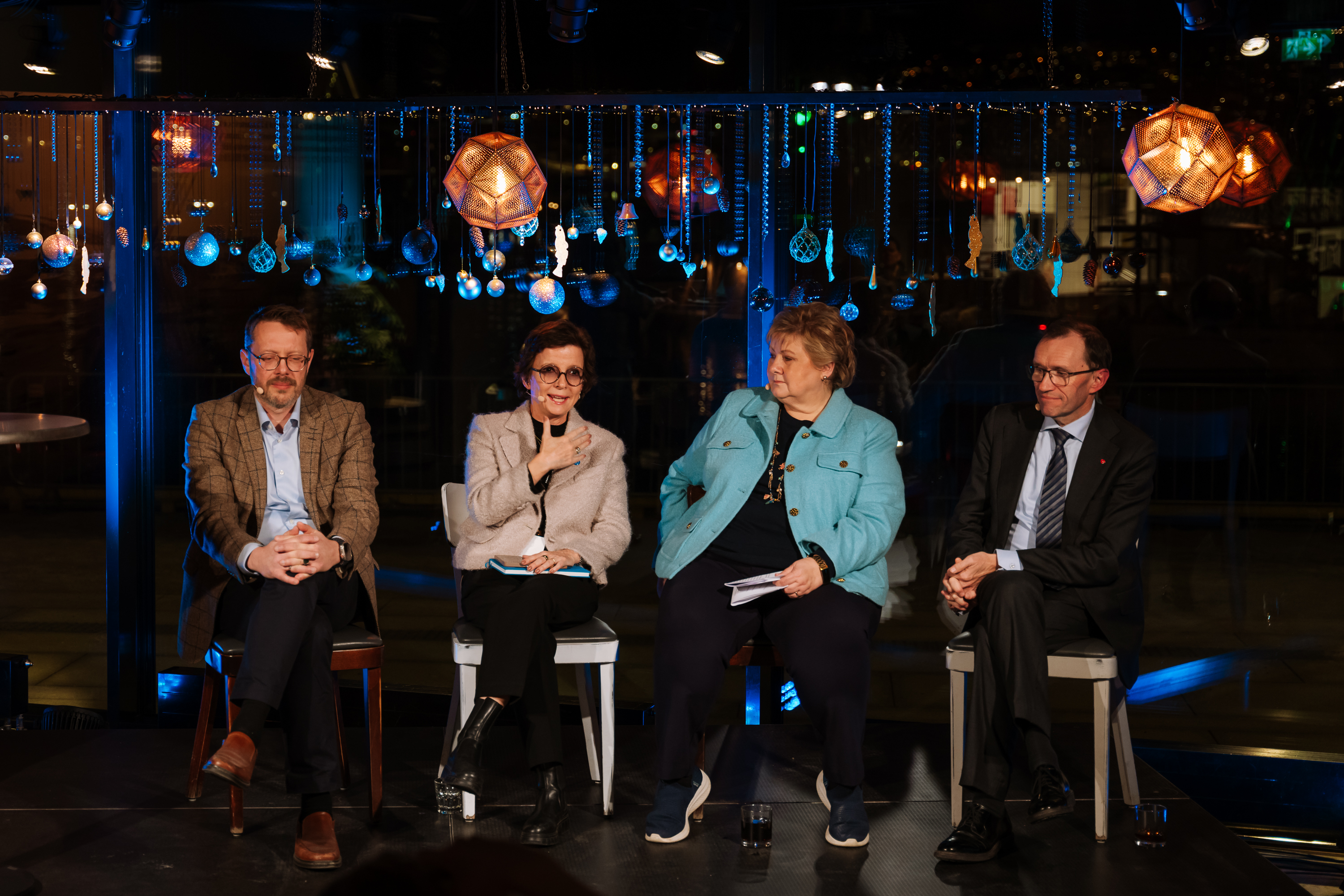Karen Ellemann: Nordic cooperation more important than ever
The Arctic has gone from being a region characterised by peaceful cooperation to a geopolitical flashpoint. This week, the Nordic Council of Ministers launched its tenth Arctic programme during the Arctic Frontiers conference in Tromsø. It allocates 30 million Danish kroner (€4m) over three years to strengthen social, economic and environmental sustainability.
Karen Ellemann, Secretary General of the Nordic Council of Ministers, participated in a range of events during this year’s Arctic Frontiers conference.
Russia, China and Trump
Russia’s invasion of Ukraine means the largest of the Arctic countries no longer participates in the Arctic Council.
China is showing increasing interest in the region’s raw material potential and a new Trump administration has already introduced fresh insecurity around the cooperation.
Finland has pulled out of the Barents Council, which has been a collaboration mainly between Russia, Norway, Finland and Sweden aimed at promoting stability and sustainable development in the region. Russia withdrew in September 2023.
This situation means the Nordic cooperation is more important than ever, argues Karen Elleman, who launched the Nordic Council of Ministers’ Nordic Arctic Programme – number ten so far – in Tromsø.

Secretary General of the Nordic Council of Ministers Karen Ellemann participated in a range of events during the Arctic Frontiers conference in Tromsø. (Photo: David Jensen)
The Nordic Labour Journal met Ellemann during the Arctic Frontiers conference.
What is the state of the Nordic cooperation today compared to just one year ago?
“Clearly, a lot has happened in one year, and it is no secret that all of us in our large, wide, Nordic region to a large extent feel the geopolitical situation. We do talk about prepping, our defence, our private preparedness.
“That’s why preparedness and our resilience is much higher on the agenda now than last year.
“I also feel it is important to remember that climate change is still an important issue that must not fall as a priority compared to all the other crucial tasks we are facing. But there’s no doubt the debate about our resilience and preparedness is higher on the list now.”
Security cooperation is not a main topic in the new Nordic Arctic Programme?
“But the programme focuses on the need to create a resilient society. Being resilient and well-functioning is the best defence you can have, after all.
“With a new Arctic cooperation programme we can deliver economic support to incredibly important elements like civil society cooperation, allowing people to meet and share knowledge. This is a crucial part of creating strong, resilient societies here in the Arctic North.
“We must not take our democracies for granted but keep supporting cooperation between people. This is happening to a large extent on a local level. Without well-functioning, strong local communities you have poor resilience.
“In a time when there are good reasons to be concerned, it is important to remember the strong foundation we have through the Nordic cooperation with our solid and well-functioning democracies.
“We enjoy a high degree of trust – in our institutions, between people, in our politicians and in our democratic model. And again, this is not something we should take for granted.”
You have also involved young people as part of the strategy in the new Arctic programme?
“If you want to secure a sustainable society and especially a sustainable region, the people who live there must thrive. And thriving involves many things – having a job, it’s about the economy and about living in a safe society.
“It’s also about something as fundamental as establishing an understanding of democracy, and this begins as early as in preschools and elementary schools. Strong civil societies are built on this understanding of democracy.

Karen Ellemann on a panel with (left to right) Stian Bones from the Arctic University of Norway, leader of the Norwegian Conservative party Erna Solberg and Norway's Foreign Minister Espen Barth Eide. (Photo: Sverre-Leander Sundset)
“Just a few days ago here in Tromsø, around 300 youths gathered for a large Arctic yough conference with representatives from across the Arctic nations. I had the opportunity to talk to several of the participants.
“I think we are in danger of sometimes forgetting how incredibly important it is to have such meeting places. We have to invest in this – partly so that young people to meet and have a dialogue, but also so that we can get involved ourselves in many of these discussions.
“Several mayors from the Arctic Mayors’ Forum have told me how they, on a practical level, make sure to involve young people when they develop plans for their local societies.”
Do you see a changed role for the Nordic Council of Ministers now that Finland has pulled out of the Barents Council, the Arctic Council no longer has any meaningful Russian participation and there is uncertainty about the direction of the new Trump administration?
“I see that the cooperation is more important than ever, and I want to highlight the strong cooperation between the Nordic Council of Ministers and the parliamentarians on the Nordic Council, as well as the important cross-sectoral collaboration that also exists. This is often the prerequisite for finding good solutions to complex problems.
"I also see great strength in the fact that the Nordic countries now stand united in terms of defence, with both Finland and Sweden as Nato members. This creates a strong Nordic presence in Nato and supports collaboration on all the other important agendas I have mentioned.
“We need to have close cooperation in our region, that is the core prerequisite for us being able to be strong, sustainable societies and it makes us competitive.
“So yes, there is an extra momentum for Nordic cooperation right now, I am convinced of it. And all of our cooperation programmes in the councils of ministers underline this too. Preparedness and resilience are recurring themes. We have to maintain trust and uphold our strong democracies.

 Follow us on Facebook
Follow us on Facebook
